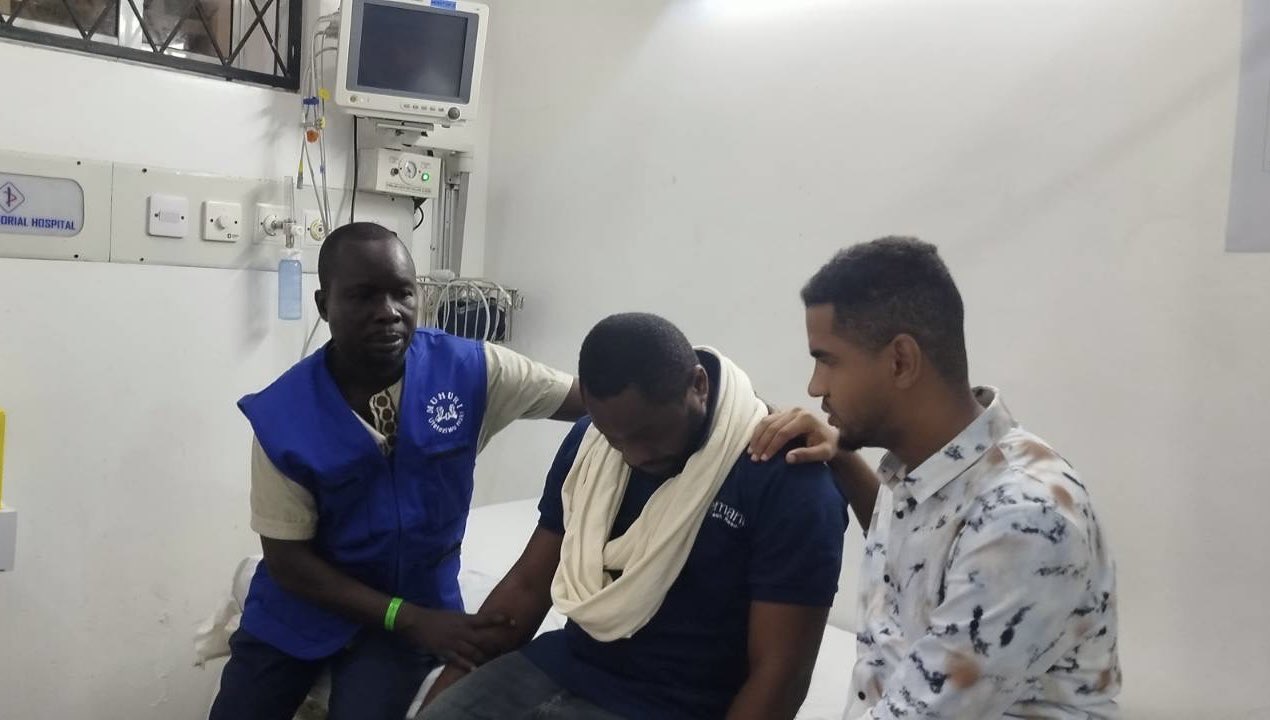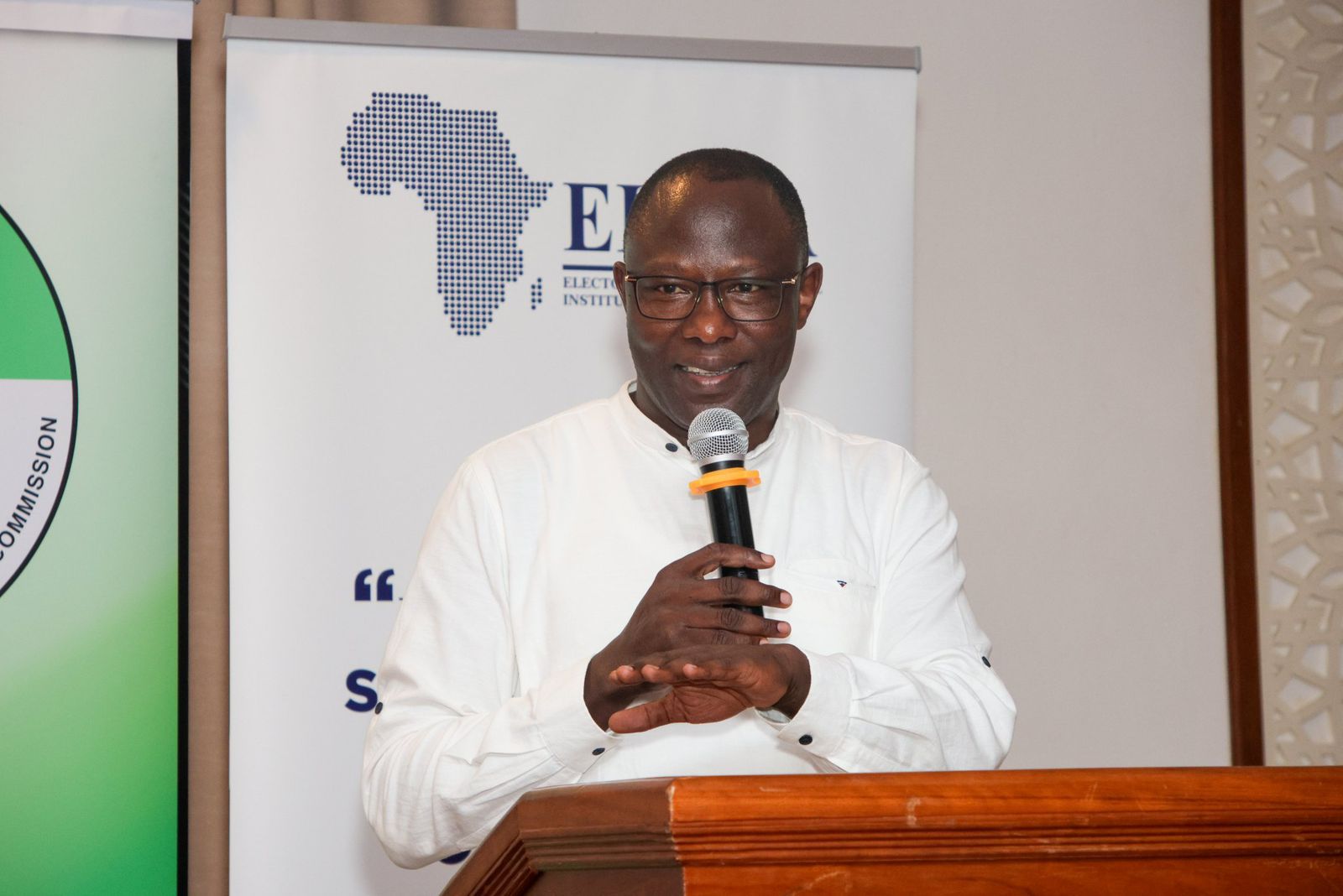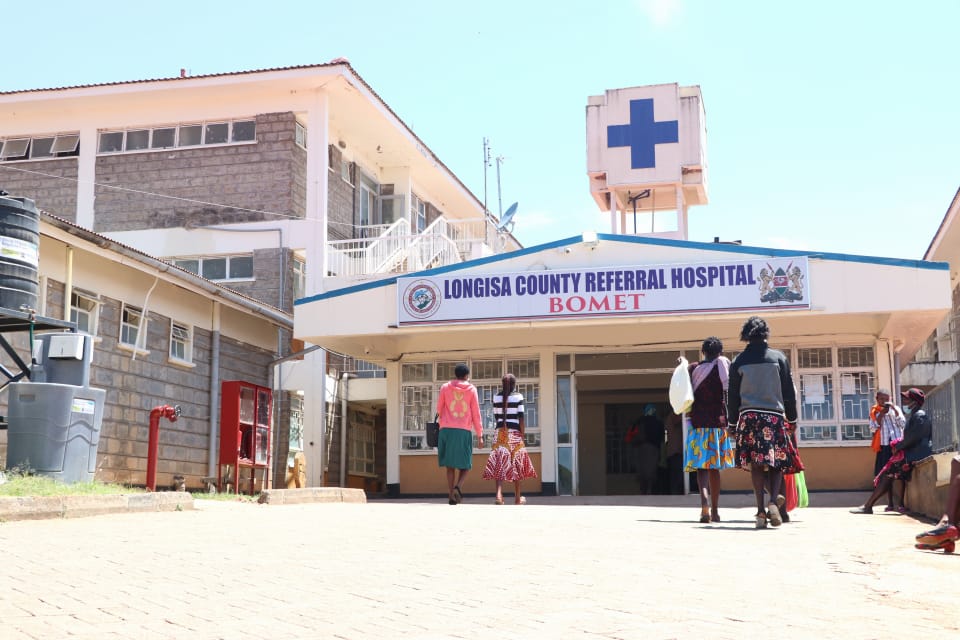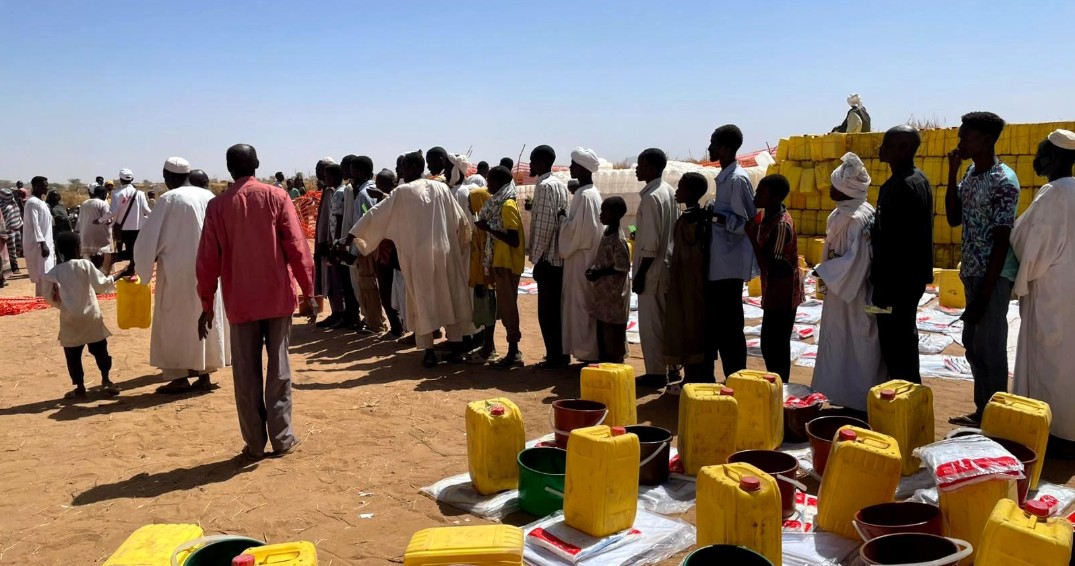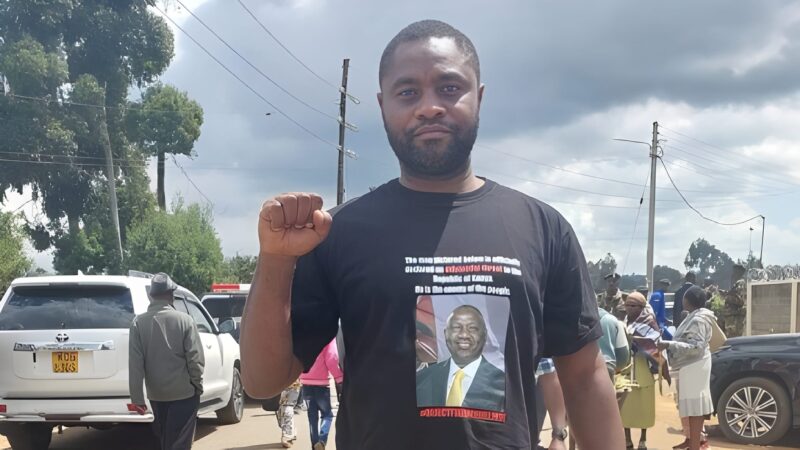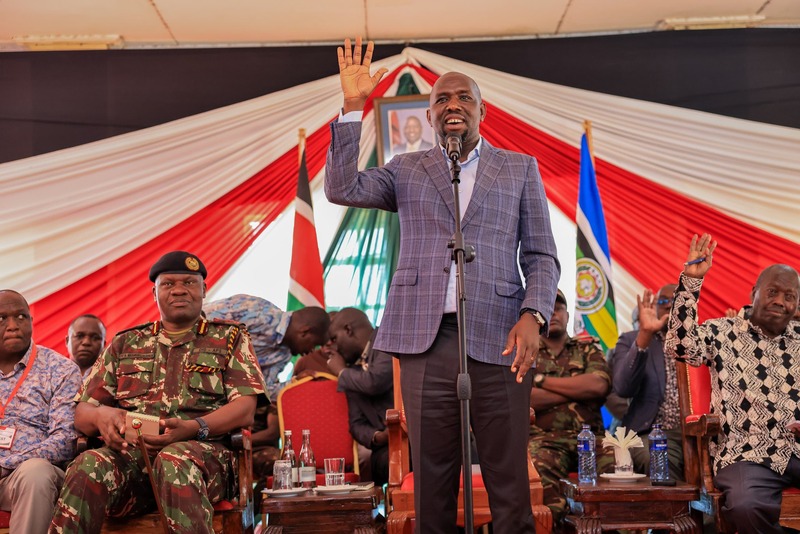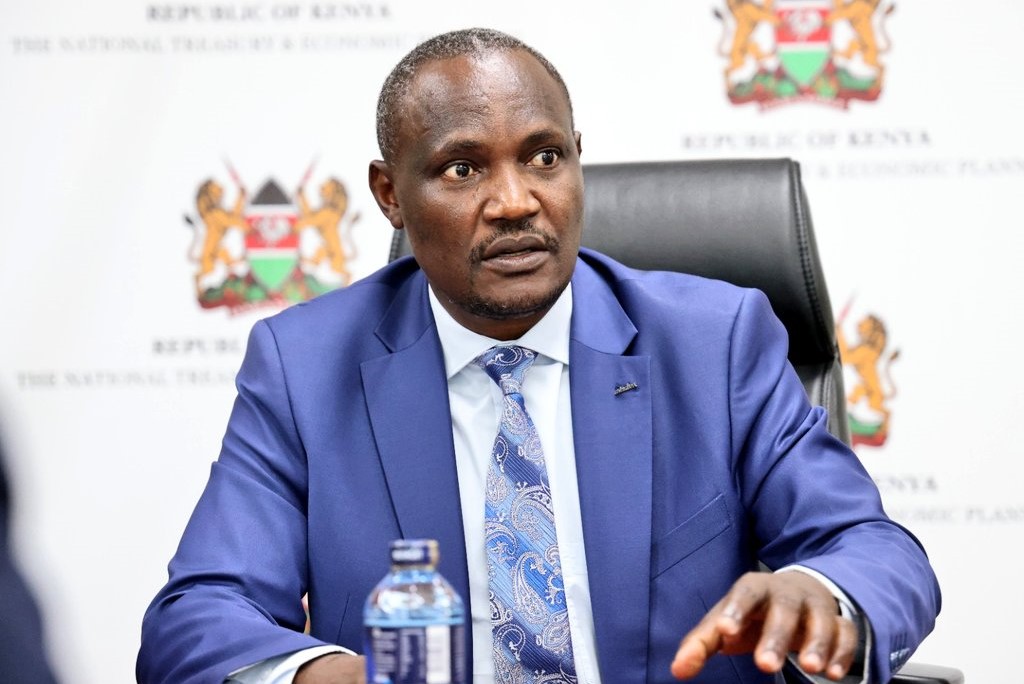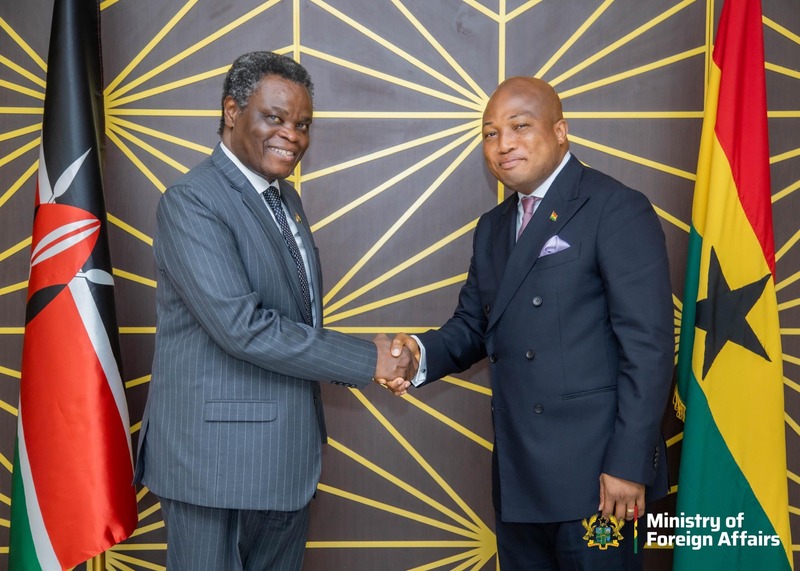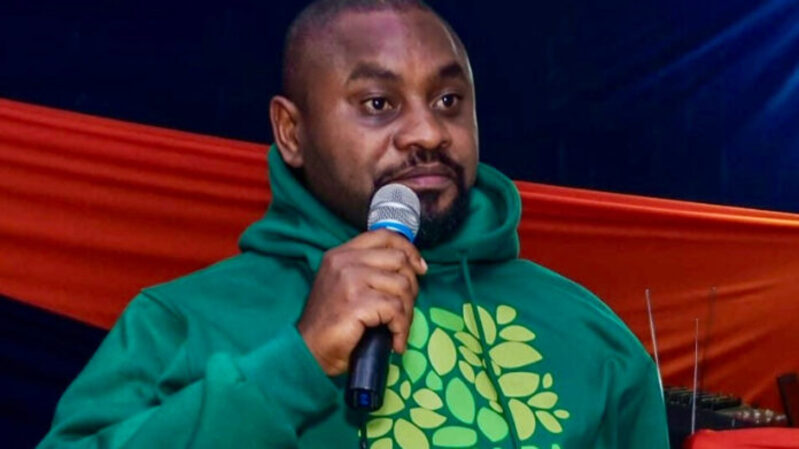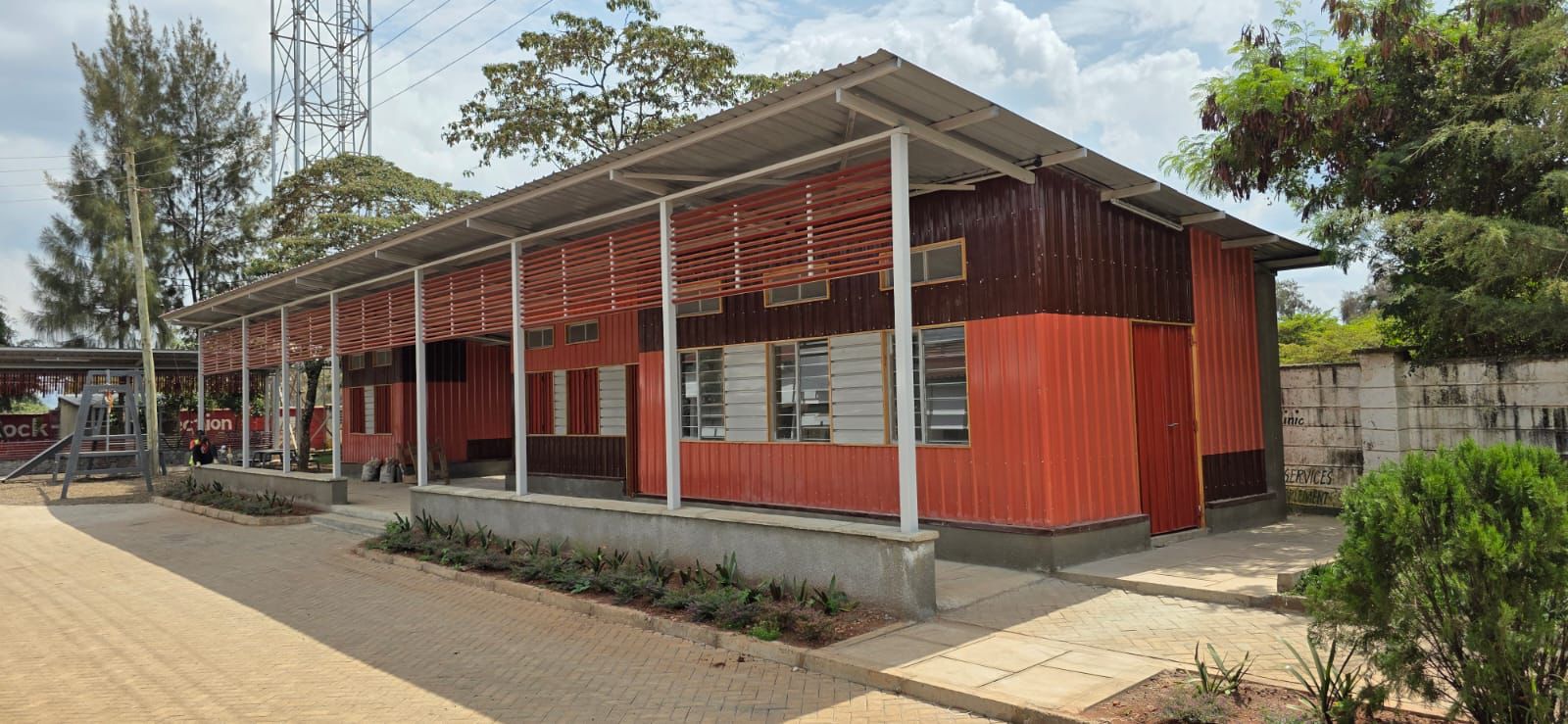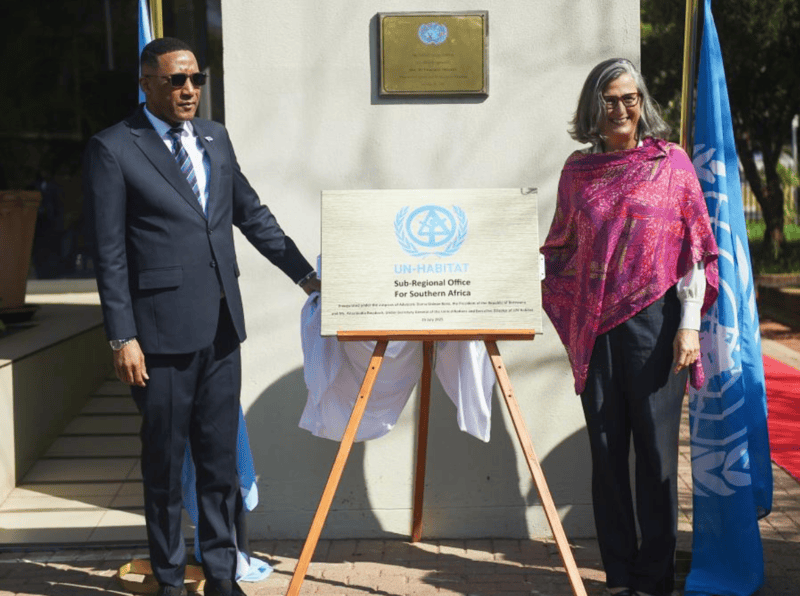Art and Culture exhibition in Nairobi honours struggles of women
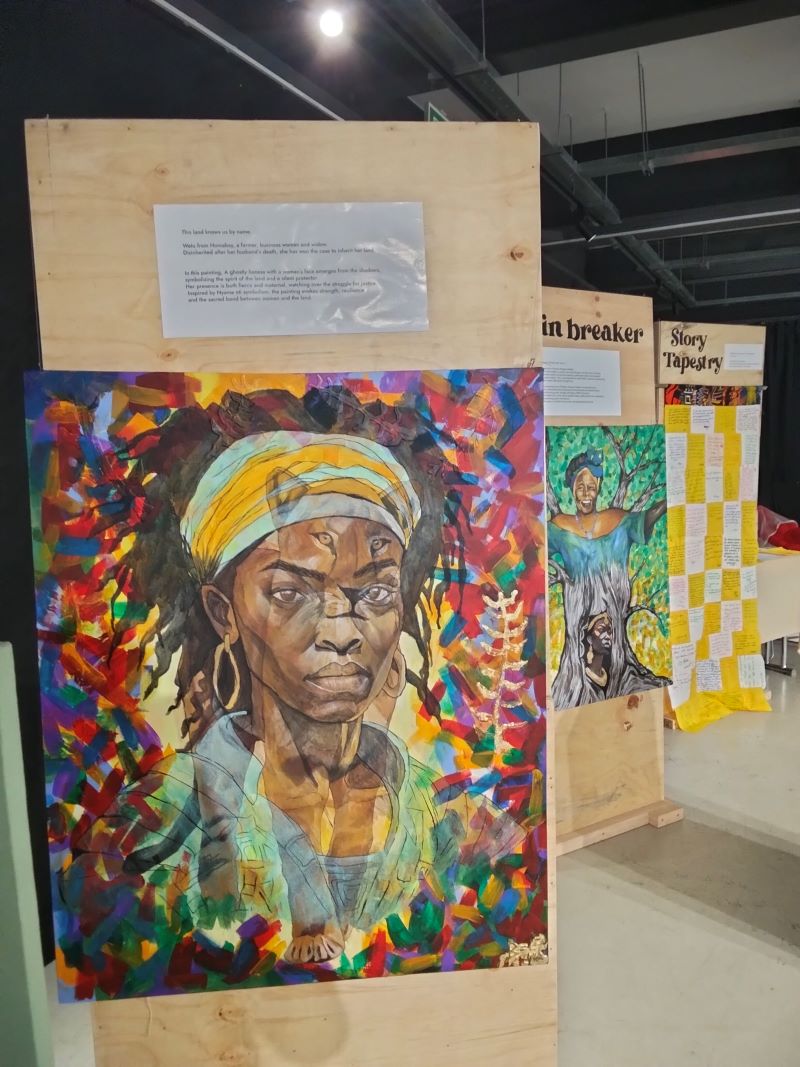
The artistic displays were selected through an open call, resulting in four female artists creating works reflecting on specific themes discussed during the 1985 conference and examining the progress achieved since. The artworks invited audiences to reflect deeply, with some encouraging direct participation.
A colourful exhibition of art, culture and film in Nairobi has been honouring the contribution of women to Kenya’s socio-political emancipation.
The event, held at the Goethe-Institut and Alliance Française in Nairobi, and dubbed Rewind, Remix, Reclaim, is the first festival of its kind commemorating the 40th anniversary of the UN World Conference on Women, which took place in Nairobi in July 1985.
More To Read
- African women key to fighting climate change – these are the green skills they will need
- UNHCR reports record displacement in West and Central Africa
- Kenya’s economic growth to be powered by women and diaspora remittances -Report
- Climate change is hitting women the hardest. What to do about it – economists
- Relief for women as Nairobi's new health partnership tackles neglected diseases
- Regional women's caucus formed to enhance peacebuilding and cross-border trade
Running over the same dates as the original conference, July 15–25, the festival offered an artistic exploration of the legacy of the historic gathering through the lens of today’s feminist movements and socio-political shifts, both global and local. Its programme featured feminist video and film screenings, panel discussions and workshops, experiential art installations, and live performances.
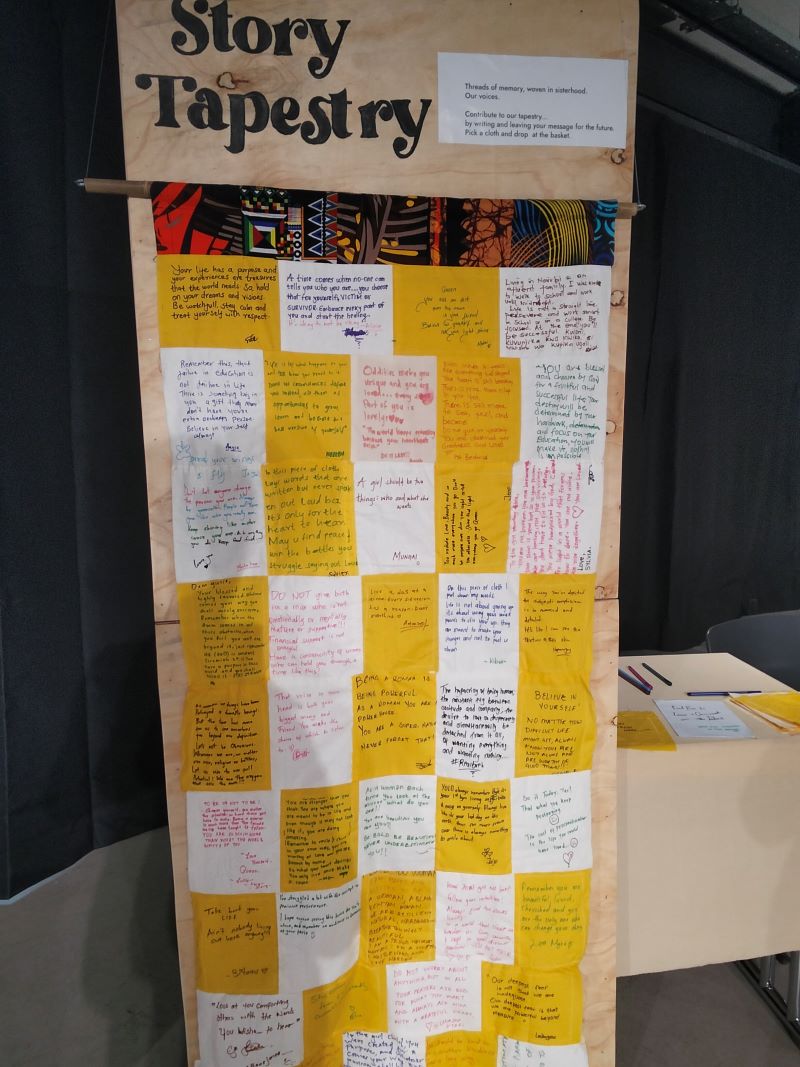 A wall of art where observers give their comments. It's called " Story Tapestry." (Barack Oduor)
A wall of art where observers give their comments. It's called " Story Tapestry." (Barack Oduor)
The artistic displays were selected through an open call, resulting in four female artists creating works reflecting on specific themes discussed during the 1985 conference and examining the progress achieved since. The artworks invited audiences to reflect deeply, with some encouraging direct participation.
Among the striking pieces was an imposing work titled Chain Breaker about the late Nobel laureate Professor Wangari Maathai, honouring her as a guardian spirit.
“The chain breaker, a woman who went through it all and came out shining. Shamed, beaten and almost erased by a patriarchal system, yet triumphant,” the artist wrote in her description of the piece.
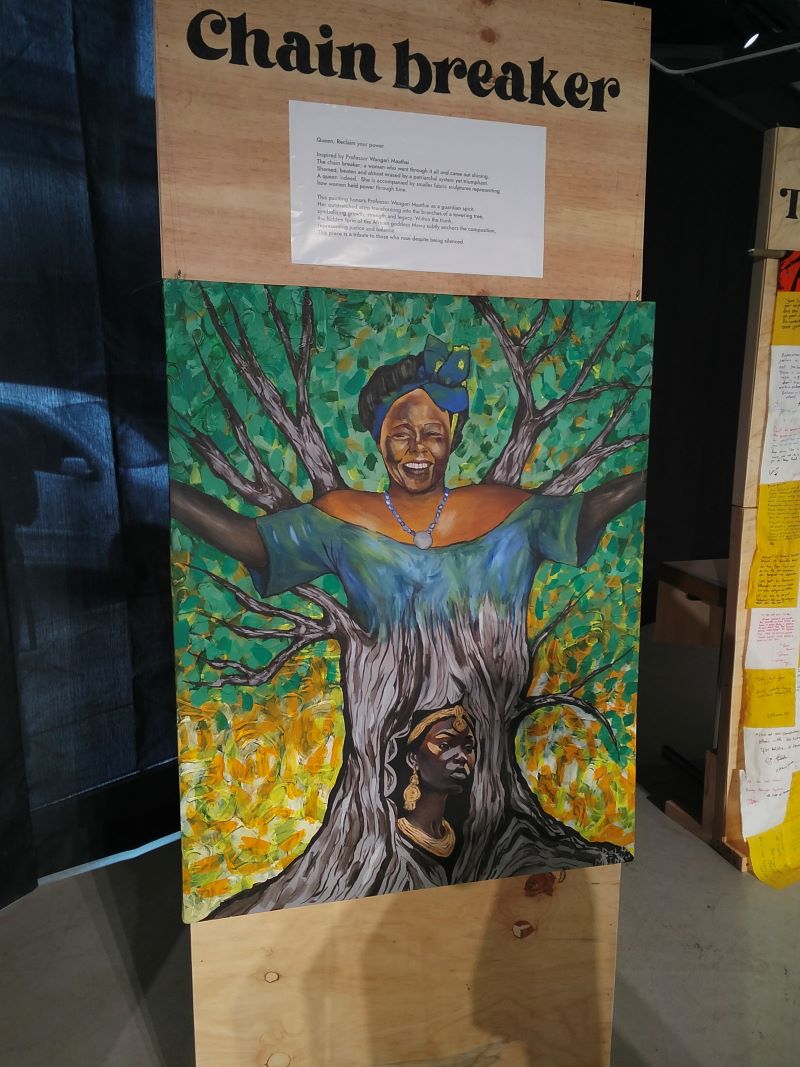 A painting of Professor Wangari Maathai, themed "Chain Breaker." The painting honours Professor Wangari Maathai as the guardian spirit. (Barack Oduor)
A painting of Professor Wangari Maathai, themed "Chain Breaker." The painting honours Professor Wangari Maathai as the guardian spirit. (Barack Oduor)
Accompanying the painting were smaller fabric sculptures representing how women have held power through time.
Another piece, titled WAKIANDA, depicted a woman’s labour pains, capturing the painful yet courageous struggle to give life.
The festival also revisited elements of the original conference, including self-defence classes, artist talks and workshops, in a lively and engaging atmosphere. Some participants from the 1985 event featured on the discussion panels, alongside artists and humanitarians who shared perspectives on the current state of gender equality.
The thought-provoking programme aimed to engage the public both intellectually and emotionally, highlighting the gaps that society must still address to end violence against women and advance gender equality.
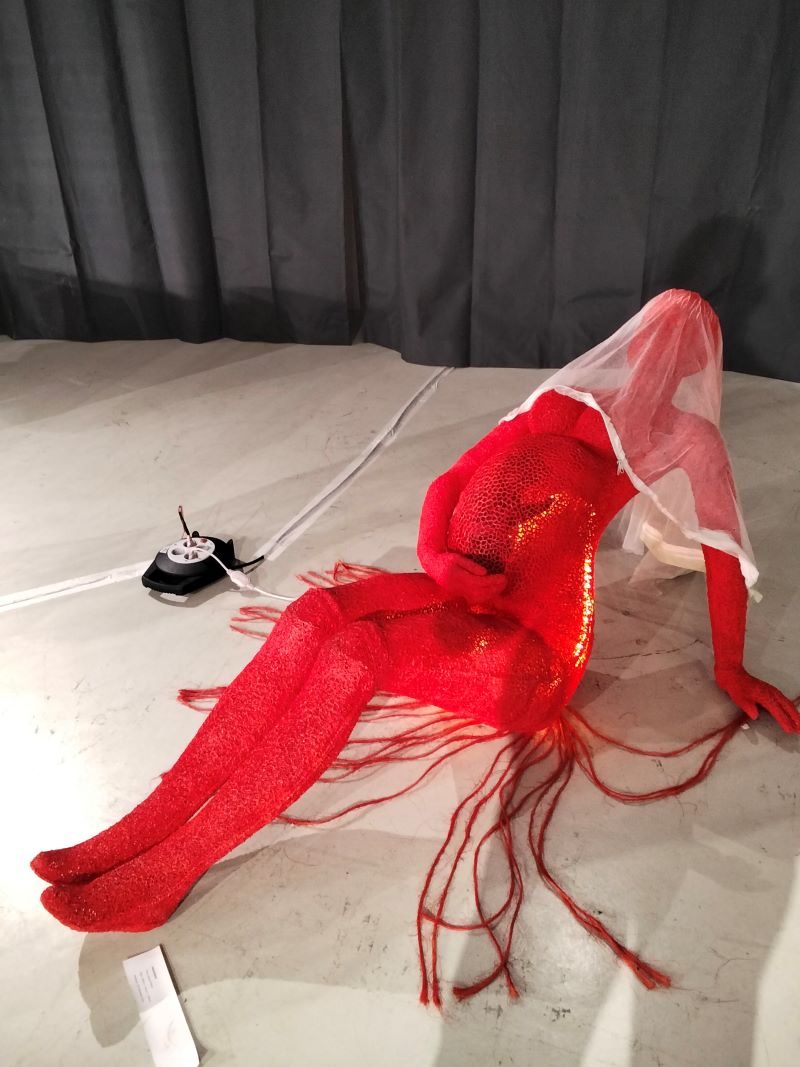 A piece of art referred to as WAKIANDA depicts a woman in labour pains. (Barack Oduor)
A piece of art referred to as WAKIANDA depicts a woman in labour pains. (Barack Oduor)
At the Alliance Française auditorium, film screenings centred on the themes of pain and power. Two documentaries offered an unflinching look at women’s realities in Kenya and Guinea-Bissau, posing the critical question of how real change can be achieved.
The 27-minute documentary Kenya’s Hidden Epidemic, produced by BBC Africa Eye in 2022 and reported by Tom Odula, revealed the surge in gender-based violence during the COVID-19 pandemic.
Odula investigated the deep-rooted causes of the violence and explored why fear, stigma and mistrust of the police prevent most survivors from reporting their cases.
The 40-minute documentary Unite For Bissau or Nô Kumpu Guiné: Agroecology And Feminism In Guinea-Bissau, produced in 2023 by Lara Lee, follows courageous women challenging harmful cultural practices such as female genital mutilation and early marriage.
Set in Guinea-Bissau, the film showed how these women assert their power through agroecology and institution-building, carrying forward the legacy of independence leader Amílcar Cabral, who placed women’s rights at the heart of liberation.
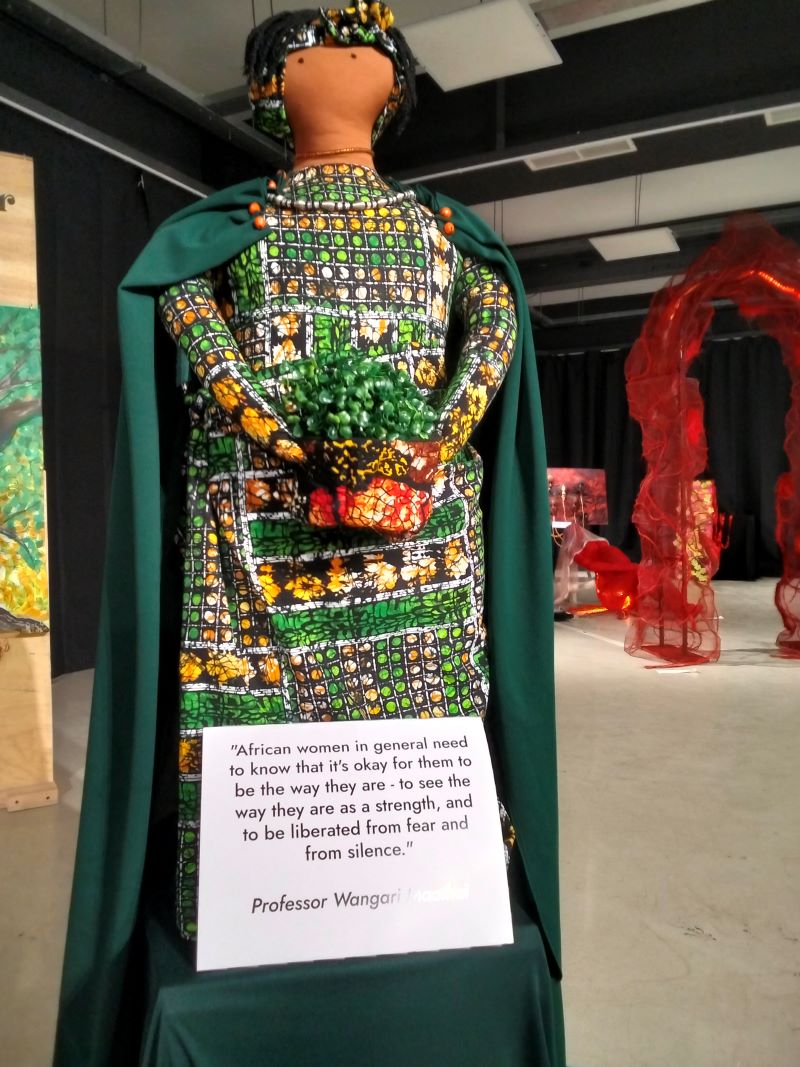 A piece of art depicting an African woman in an African fabric. (Barck Oduor)
A piece of art depicting an African woman in an African fabric. (Barck Oduor)
The festival also hosted a panel discussion on the troubling rise of femicide in Kenya. Panellists included Njeri Migwi, an intersectional feminist, human rights defender and founder of Usikimye; Onyango Otieno, a writer, poet and storyteller challenging dominant narratives of heteromasculinity; and Florence Sipalla, a communication consultant and trainer. The discussion was moderated by Abigail Arunga, an activist, award-winning scriptwriter, editor and columnist.
A practical workshop introduced participants to jiu-jitsu for self-defence.
Of particular interest was a panel discussion on respect for sex work and the rights of labourers, which shone a spotlight on human rights violations against domestic and sex workers and the opportunities for reform.
Panellists included Silvia Okoth, an advocate for young sex workers’ rights with the Bar Hostess Empowerment and Support Programme, and Patrick Karanja, Nairobi Branch Secretary of the Kenya Union of Domestic, Hotels, Educational Institutions, Hospitals and Allied Workers. The discussion was moderated by journalist, filmmaker and curator Wanjeri Gakuru.
Top Stories Today
